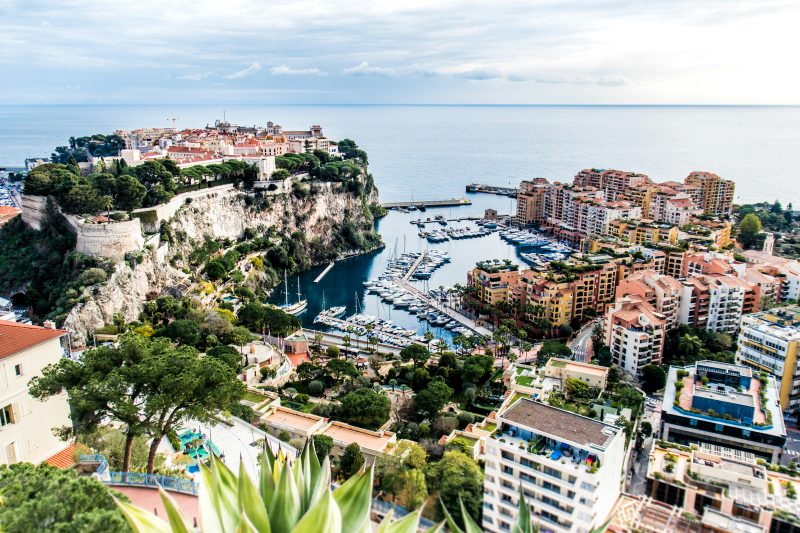Incentive travel has become a key strategy for many companies looking to boost employee morale, drive sales, and strengthen client relationships. Rather than theoretical examples, let’s dive into how real companies have successfully implemented incentive travel programs and the measurable benefits they’ve seen as a result.
Google — Boosting Team Collaboration with Group Incentive Travel
Challenge: Google is known for its innovative work culture, but with such a large workforce, maintaining employee engagement and collaboration across different teams can be challenging. While the company offers some of the best perks in the corporate world, they wanted to explore a way to further inspire teamwork and keep motivation high.
Solution: Google introduced team-based incentive travel to their top-performing project teams. One of the more famous trips included taking a group of engineers and developers to Switzerland to explore the Swiss Alps, combining leisure activities like skiing and hiking with work-related workshops.
Result: The result was a measurable boost in employee morale and cross-team collaboration. Employees who participated reported that the experience helped them foster deeper connections with colleagues, and they returned to the office feeling re-energized and more creative. Over time, these trips helped Google retain its top talent and continue to push the envelope on innovation.
Key Takeaway: Even at large, successful companies like Google, incentive travel can create a sense of community and enhance collaboration across teams, leading to better overall performance.
IBM – Increasing Sales with High-Impact Incentive Trips
Challenge: IBM, a global leader in IT consulting and technology services, has a vast sales force spread across the globe. With stiff competition in the tech industry, IBM wanted to ensure that its sales teams stayed motivated to close large contracts while fostering loyalty to the company.
Solution: IBM launched an incentive travel program called the “IBM 100% Club,” where top salespeople were rewarded with exclusive trips to luxurious destinations. In one notable year, the reward trip was held in Monte Carlo, Monaco, featuring lavish dinners, access to private yacht cruises, and a gala at the Casino de Monte-Carlo.
Result: IBM saw a 20% increase in revenue from the teams eligible for these incentive trips within the first year of implementation. The 100% Club became a coveted status among sales reps, driving competition and performance to new heights. In addition, employee turnover rates dropped significantly as top performers became more loyal to the company.
Key Takeaway: For global giants like IBM, incentive travel not only drives sales but also retains top talent by giving employees something extraordinary to strive for, creating a competitive yet motivating environment.

Marriott International — Rewarding Client Loyalty Through Experiential Travel
Challenge: Marriott International, one of the largest hotel chains in the world, is in constant competition for loyalty among its business clients, who manage large corporate travel budgets. As part of its Marriott Bonvoy loyalty program, the company wanted to go beyond standard points and rewards to offer something more engaging for its top clients.
Solution: Marriott introduced incentive travel packages for top corporate clients, offering exclusive access to some of the most luxurious properties in the world. One such trip took corporate partners to Marriott’s St. Regis Bora Bora Resort, where they enjoyed private overwater villas, personalized tours, and access to fine dining experiences. These trips were designed to be both luxurious and immersive, helping clients experience the full extent of what Marriott’s properties could offer.
Result: The program led to a substantial increase in client loyalty and corporate bookings. Marriott reported that clients who participated in the incentive travel program increased their annual spend on corporate travel by an average of 30%. The experiential nature of these trips allowed Marriott to build deeper relationships with key decision-makers, securing longer-term partnerships.
Key Takeaway: By offering high-value experiences rather than traditional rewards, Marriott International was able to strengthen client loyalty and increase long-term business from its top clients.

Coca-Cola – Driving Distributor Loyalty with Travel Experiences
Challenge: Coca-Cola relies heavily on its network of global distributors to ensure that its products reach markets around the world. However, as competition in the beverage industry heats up, Coca-Cola wanted to incentivize distributors to stay loyal and push Coca-Cola products more aggressively than competitors.
Solution: Coca-Cola created an incentive travel program where top-performing distributors were rewarded with all-expenses-paid trips to premier destinations like the Maldives, South Africa, and Bali. These trips often combined leisure with business, allowing distributors to network with Coca-Cola executives while enjoying luxurious experiences.
Result: Coca-Cola saw a 15% boost in distributor sales after implementing the program, as distributors were highly motivated to win these exclusive travel experiences. The program not only incentivized better sales performance but also created a sense of community among Coca-Cola’s global network, improving distributor loyalty.
Key Takeaway: For companies like Coca-Cola, where success depends on the performance of third-party distributors, incentive travel can help foster loyalty and create long-lasting business relationships.
Oracle – Enhancing Employee Motivation Through Exclusive Global Travel
Challenge: Oracle, one of the world’s largest software companies, wanted to ensure that its global sales team remained motivated year-round. Sales targets were getting tougher as the market became more saturated, and they needed a way to push their team to overdeliver.
Solution: Oracle introduced a high-stakes incentive travel program for its top-performing sales teams, flying them to unique locations like the Great Barrier Reef in Australia and Iceland’s Blue Lagoon. These trips offered a perfect mix of adventure and relaxation, rewarding employees for their hard work while also reinforcing Oracle’s values of innovation and exploration.
Result: Oracle saw a 22% increase in top-line sales in the regions that participated in the program. The incentive trips also helped reduce burnout among employees, providing a much-needed break while boosting their energy and enthusiasm for the company’s mission.
Key Takeaway: In highly competitive industries like software, incentive travel can be a critical tool for maintaining employee motivation, boosting sales, and preventing burnout among high-achieving teams.

Real Results from Real Companies
These case studies illustrate that incentive travel is far from just a perk—it’s a strategic tool that drives measurable business results. Whether it’s increasing sales, fostering loyalty, or improving collaboration, companies like Google, IBM, Marriott, Coca-Cola, and Oracle have demonstrated how travel incentives can lead to long-term success.
If you’re looking to implement or revamp your company’s incentive travel program, consider how these real-world examples might inspire your approach. The right incentive travel experience can transform your business by motivating your employees, rewarding loyalty, and building stronger relationships with your partners and clients.
Looking to establish an incentive travel program that boosts your team’s performance? Get in touch with the experts at Riveting Trips today to begin planning experiences that deliver measurable results.


